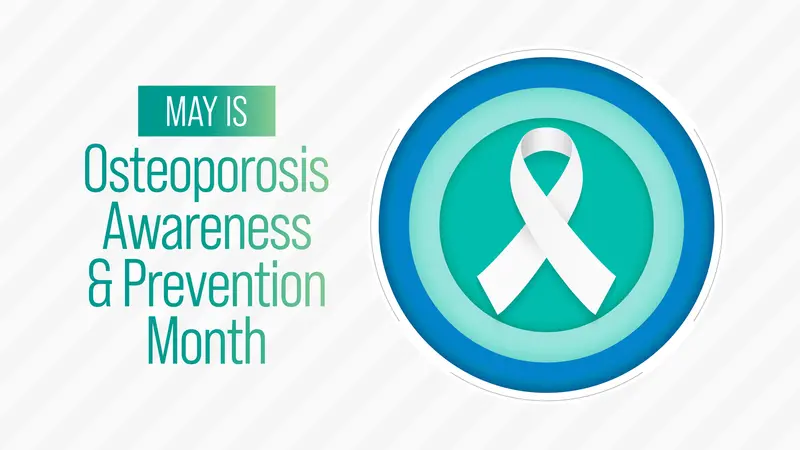

WELLthier Living and Aging

WELLthier Living and Aging
Keeping Bones Healthy as You Age
Healthy bones are important at any age, but the risk of fractures increases with age. Osteoporosis is a disease that thins the framework inside bones to the extent that even minor bumps and falls can cause bone fractures. After age 50, half of women and 20% of men experience fractures due to weakened bones.
Throughout one’s lifetime, bone is constantly being broken down and replaced with new bone. Up to about age 25, more bone is created than is lost, so bone density increases. Bone density generally stays stable from ages 25 to 50, but after age 50 bone loss accelerates.
Women are at greater risk for osteoporosis, a risk that increases with menopause when estrogen levels fall. Other risk factors affect both men and women, such as family history, certain medical conditions, and long-term use of medications, inactivity, alcohol and cigarette use, and inadequate nutrients.
The earlier steps are taken to build and maintain bone density, the more likely a person can prevent osteoporosis. Aim to consume between 1,000 and 1,200 mg per day of calcium, through dairy, green vegetables, calcium-fortified foods, or supplements if needed to meet the requirement. “There is no doubt that getting enough calcium reduces fracture risk,” says Deborah Sellmeyer, MD, medical director of Johns Hopkins Metabolic Bone Center.
Vitamin D helps with calcium absorption, and experts recommend 600-800 IU per day depending on age. Potassium has also been shown to improve calcium metabolism and many adults fall short of the recommended 4,700 mg per day. Fruits and vegetables are rich in potassium, especially bananas, potatoes with skin, prunes, spinach, and winter squash. Protein is important for strong bones and has been shown in studies to help with bone healing.
Weight-bearing exercise is important for keeping bones strong. This can include walking, dancing, or weight training. Dr. Sellmeyer says, “Any activity that puts your bones to work stimulates the remodeling that keeps bones strong.” Building muscle can be preventative as well. A study conducted by Johns Hopkins found that those with more muscle strength were less likely to have low bone density. Cut back on caffeine and alcohol and quit smoking to reduce the added risk of bone loss.
A bone density scan is recommended for all women over 65 and men over 70, but a doctor may recommend an earlier scan if any warning signs are present, such as family history, a bone fracture after age 50, sudden back pain, or loss of height. A scan can help with diagnosis and prevention. Research has shown that those who have bone density screenings are 36% less likely to have a hip fracture in the next six years as screenings often catch thinning bones early enough for treatment.
For those who have been diagnosed with osteoporosis, taking the preventative steps mentioned above can help prevent further decline. Strong muscles can also lower the risk for a fall and a healthy posture reduces risk of spine fracture, so exercises that build muscle and improve balance and posture are advised.
REFERENCES
Johns Hopkins Medicine. (n.d.) Osteoporosis: What you need to know as you age. https://www.hopkinsmedicine.org/health/conditions-and-diseases/osteoporosis/osteoporosis-what-you-n…


 By
By







